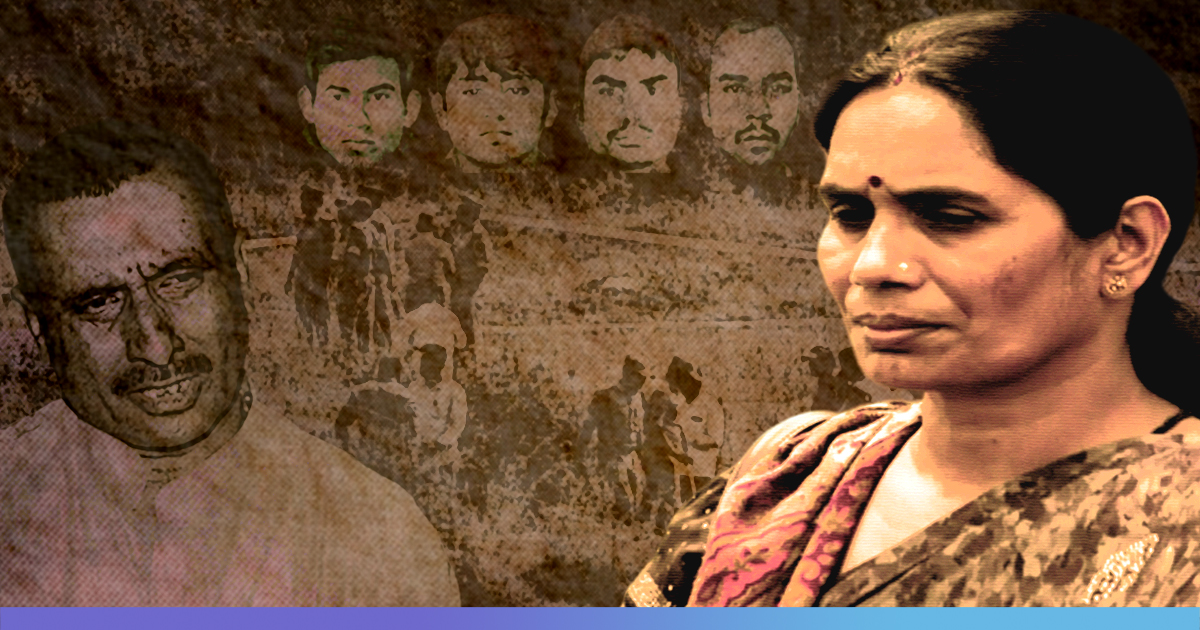
From Hyderabad Vet To Unnao Rape Cases, Questions On Women's Safety Remained Unanswered In 2019
1 Jan 2020 4:41 AM GMT
Editor : Sumanti Sen
Sumanti Sen is an English Literature graduate who believes "there's just one kind of folks. Folks.".
After the Nirbhaya gang-rape and murder in 2012, the Hyderabad Vetarnarian’s case shook the collective conscience of the country this year. On November 27, 2019, a 26-year-old veterinarian was gang-raped, murdered and set ablaze by four men, who were later killed in an alleged police encounter.
The brutality inflicted on the woman yet again raised questions on the safety of women in India. As 2019 nears its end, let us take a look at how the country fared in keeping our women safe.
Crime Against Women On The Rise: NCRB Data
As per the latest National Crime Records Bureau data, which came out in 2019 after a delay of two years, revealed that the crimes against women in India are on the rise.
The data said that while incidents of rape have reduced, the overall rates of crime against women continue to rise.
Although cases of rapes reduced from 63 per million people in 2016, to 52 per million in 2017, a total of 3.5 lakh cases of crime against women were registered, including murder, rape, dowry death, suicide abetment, acid attack, cruelty against women, and kidnapping.
Uttar Pradesh recorded the highest number of cases where 56,011 were registered, followed by Maharashtra with 31,979 cases. These were followed by West Bengal (30,992), Madhya Pradesh (29,778 ), Rajasthan (25,993), and Assam (23,082).
Arunachal Pradesh, Goa, Himachal Pradesh, Manipur, Meghalaya, Mizoram, Nagaland, Sikkim, and Tripura, however, record some positive data – here, the cases registered are only in three digits. A similar trend was noticed in the Union Territories—Chandigarh registered 453 cases, followed by Andaman and Nicobar Islands (132), Puducherry (147), Daman and Diu (26), Dadra and Nagar Haveli (20), and island territory of Lakshadweep (6).
Women of all ages have become victims of sexual violence and heinous offences ranging from rape to physical and sexual assault to harassment at workplaces. The rising crimes acted as a barrier for women empowerment and establishing equality between both genders in 2019.
The crimes not only have a physical and psychological impact on the victims and survivors but also put a constant constraint on both societal and individual development. The World Bank report of 2018 revealed that violence against women is estimated to cost countries up to 3.7 per cent of their GDP – more than double the amount of what most of the governments spend on education.
Unnao – ‘Rape Capital’ Of Uttar Pradesh
A woman from Sindupur village in the Unnao district in Uttar Pradesh had alleged that the police declined to file her complaint after few men attempted to rape her.
“Kehte hain ki balatkaar karne ka prayaas kiya hai, hua toh nahi hai. Jab balatkaar kar denge phir nyay milega, toh kya hi nyay milega (They say that the men have attempted to rape me, they haven’t raped me yet. If I get justice after rape, what kind of justice would that be?),” the girl had said.
The news of this police inaction came to light days after Unnao qualified to be called the ‘rape capital’ of Uttar Pradesh, with 86 rape cases and 185 cases of sexual harassment of women reported from January to November.
In December 2019, the country was shocked after a rape victim in Unnao was repeatedly stabbed, beaten with sticks, and was set ablaze by five men who were accused of raping her. On December 5, the 23-year-old was attacked by the men when she was on her way to meet lawyers in Rae Bareli. She died at Safdarjung Hospital on December 6.
Unnao came into the spotlight after a young woman accused former BJP MLA Kuldeep Sengar of raping her in 2017 when she was 17 years old.
Kuldeep Sengar Gets Life Imprisonment
After two years of continuous battle, the Unnao rape survivor finally got justice after a Delhi district court convicted expelled BJP MLA Kuldeep Singh Sengar for kidnapping and raping her. Sengar got life imprisonment in the case, and a ₹25 lakh fine was imposed on him to be paid to the survivor. The quantum of sentence was announced by District Judge Dharmesh Sharma.
The judgement slammed the CBI – for not assigning a woman officer to investigate as is mandatory under the POCSO Act
-for calling the victim to the CBI office to record her successive statements “without bothering on the kind of harassment, anguish and re-victimisation that occurs in such a case”, and
-for delaying to file a charge sheet by almost a year.
The court further said that the witnesses’ statements and call records “appear to have been selectively leaked to put a cloud over the case of the complainant”. It said that the CBI did not examine the “huge data” that was retrieved from the two mobiles phones of Sengar.
“It appears that somewhere investigation has not been fair to the victim of a crime and her family members,” the court said.
Nirbhaya Awaits Justice
Seven years after Nirbhaya was brutally gang-raped and murdered in a moving bus in Delhi on December 16, 2012, the victim’s parents still await justice.
The Supreme Court confirmed capital punishment for the four men in 2017. Mukesh Singh, Pawan Gupta and Vinay Sharma later filed pleas asking the court to review its judgment, but the court refused.
On December 17, the CJI recused from hearing the review plea filed by convict Akshay Singh. On December 18, the Supreme Court rejected his review plea.
Meanwhile, the Patiala House court which was hearing on the issuance of death warrants against the four convicts has been adjourned till January 7, 2020. The court has given a week’s time to know whether the four convicts were filing mercy petitions.
Disappointed in the country’s slow justice system, Nirbhaya’s mother, Asha Devi, had told The Logical Indian: “My battle is ongoing, and it will go on until the convicts are hanged. The need of the hour is to speed up our justice system. Because of its unbearably slow pace, all the procedures that take forever to conclude, people tend to give up. They get tired of fighting.”
Cases That Left Us Shaken
In September this year, BJP MP from Jaunpur, Swami Chinmayanand, accepted to taking body massage from a woman who accused him of sexual abuse. The politician was charged, not with rape but “misusing authority for sexual intercourse” or “sexual intercourse not amounting to the offence of rape”, which has a punishment of up to five years in jail and a fine. He has also been charged with stalking, criminal intimidation, and wrongful confinement.
Several horrific cases of crime against women tell us that little has been done to ensure safety after the Nirbhaya case. The following are only a few cases among many others that often remain unreported, unattended:
- In Andhra Pradesh, six people, including three minors, brutally raped a 16-year-old girl for five days.
- On February 5, six youths in Kishangunj district of Bihar allegedly gang-raped a 19-year-old girl.
- In Madhya Pradesh’s Sagar district, a 12-year-old Dalit girl was raped and beheaded.
- On June 21, a man lured a 4-year-old girl with a 10 rupee note and raped her in a secluded spot in Zakir Nagar locality of Uttar Pradesh’s Aligarh.
- In Unnao district of Uttar Pradesh, an 11-year-old girl was raped and murdered on June 21.
- On June 19, a three-year-old girl was raped by her 11-year-old neighbour in Dehradun’s Dalanwala area.
- On June 15, a Group D staff of the Army allegedly raped a minor girl inside Indian Army’s Eastern Command headquarters in Kolkata’s Fort William.
- A social worker in Mumbai’s Sant Nagar area brutally raped a 43-year-old mentally challenged woman under a road bridge.
- On May 23, a 17-year-old deaf and dumb girl was raped by three men in Uttar Pradesh’s Rampur district. The men allegedly also filmed the act.
- In Jaipur, a 45-year-old man raped his 15-year-old daughter and thrashed and injured his wife when she protested.
- A nine-year-old girl was raped and killed by a man in Vile Parle, Mumbai. Her body was found inside a public toilet.
- Following the brutal rape of a 9-month-old girl in Telangana’s Warangal, several people held protests demanding strict punishment for the accused. The victim later died, and the 28-year-old accused, Praveen, was arrested.
- An 18-year-old woman from Fatehpur, who was allegedly raped and set ablaze, breathed her last on December 19, in a Kanpur hospital after battling for life for almost 120 hours.
- A 23-year-old woman set herself on fire outside the office of the Senior Superintendent of Police in Unnao district in Uttar Pradesh, after a man she had accused of raping her got anticipatory bail from the court on December 16.
- A 23-year-old woman was set on fire by a neighbour allegedly after a failed rape attempt in Bihar’s Muzaffarpur on December 7.
- The gang-rape and murder of a Hyderabad veterinarian on November 27 shook the country. Massive protests were held across the country with thousands of enraged people seeking justice. The four men who gang-raped, murdered and burnt the 26-year-old woman were later killed in an alleged police encounter.
The day the Hyderabad woman’s body was found, a series of five deadly rape cases were reported from different corners of the country in a period of two days – highlighting the horrifying status of women’s safety in India.
What Is Government Doing?
In December this year, Union Minister of State for Home Affair, G Kishan Reddy, in a written reply to a question regarding crime against women in Lok Sabha, said that women’s safety is government’s first priority. The letter listed a number of initiatives such as Criminal Law (Amendment to) Act, 2013, which was enacted for effective deterrence against sexual offences.
The act prescribed more stringent penal provisions, including the death penalty for rape of a girl below the age of 12 years, the Criminal Law (Amendment) Act, 2018, was enacted. The Act also inter-alia mandates completion of investigation and trials within two months each.
The letter stated that “Safe City Projects have been sanctioned in the first Phase in 8 cities (Ahmedabad, Bengaluru, Chennai, Delhi, Hyderabad, Kolkata, Lucknow and Mumbai)”.
“The Ministry of Home Affairs (MHA) has launched a cyber-crime portal on September 20, 2018, for citizens to report obscene content. MHA has launched the ‘National Database on Sexual Offenders’ (NDSO) on 20th September 2018 to facilitate investigation and tracking of sexual offenders across the country by law enforcement agencies,” the letter read.
In order to monitor and track time-bound investigation in sexual assault cases, the MHA launched an online analytic tool for police called ‘Investigation Tracking System for Sexual Offences’.
With the number and kind of atrocities being inflicted on women every single day, it is time for the government to ensure that the law is enforced. The police stations should be women-friendly where complainants feel safe and secure.
As citizens of the country, each one of us should take up the responsibility of ensuring that men and women are treated equally, women are not judged on the basis of what they wear, and that they get to exercise their rights.
We should all be active bystanders where we prevent sexual violence perpetrated on women, and most importantly, intervene when we see it happening.
Let us make 2020 a better, safer year for our women.
Also Read: Nirbhaya To Hyderabad Vet: No Short Lived Outrage Will Help Bring Down Rape Culture
 All section
All section













